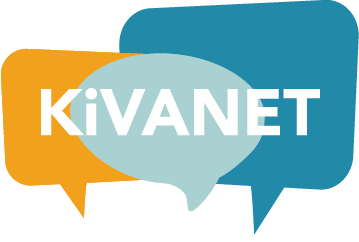Web-based studies have increased a lot lately. On the one hand, web-based studying means more freedom and flexibility, but on the other hand, web-based studies require more responsibility for the student for one´s own work. Initiative and time management skills are necessary. Freedom thus also means increased responsibility. In web-based studies, this is often taken into account by setting intermediate goals of different kinds. However, in the end it is up to the student to oversee their own study progress and to set one’s own intermediate goals.
Web-based studies are well suited for students who prefer independent work and learning online. Web-based learning is a good choice if you want to study in an environment where you are not bound to specific times and places, contrary to contact-based learning. It is worth noting that web-based learning is not faster or easier than contact-based learning. Credit points account for the same amount of work (27 hours per credit point) in web-based and contact-based learning alike. In web-based learning, studying is more independent.
We are all different kinds of learners. Sometimes, this means that web-based learning may require more time at the beginning than we think. Web-based learning may involve more reading than presumed. Independent learning may also take time because there is nobody to answer your questions straight away. When it comes to instructions and assignments of different types, it pays off to consider them carefully so that you end up doing the right things in the correct way right from the beginning.
Web-based studies require a computer with internet access. Typically, you also need a web camera and a microphone, as studies commonly include web meetings and tasks to record. The student needs to have at least basic computing skills. Studies may take place on a platform that is not familiar from previous studies. Therefore, it may also be necessary to reserve time to learn how to operate in a new study environment.
General tips for web-based studies
- Study progress is your own responsibility.
- Web-based studies are not a ticket to easier or faster results: you will use as much time during web-based studies as you would during contact studies—sometimes even more. However, you have more say on where and when you study.
- Learning will take place over the Internet: make sure in advance that you have the necessary technical equipment and skills.
- Learning material for web-based studies is generally available on the learning platform when you start the studies. Sometimes you may also need other material(s). Get hold of it in advance once you have received a place on a course.
- Supervised courses normally have a clear plan about the progress and timetable of the course. Stick to the plan.
- Make sure that you know and remember important course dates (for example, task submission dates, possible exam dates, timetabled web meetings).
- Consider your own learning style: where and when do you learn most effectively? Plan your studies in advance with an eye on the planned progress of the course. If you get ill or otherwise fall behind due to a pressing reason, catch up as soon as possible.
- Learning—over the Internet and otherwise—requires a peaceful environment: log out of your email and social media channels, put your phone on silent mode and out of sight, switch off music and television, and so on. Learning and multitasking do not mix.
- Slice up independent web-based learning to pieces that suit your learning style. Revising things learnt earlier and learning something completely new vary a lot in intensity: you can do a lot more of the former at one sitting than of the latter. Keep this in mind in your work plan.
Tips for web-based language learning
- Study regularly: rather half an hour a day than a full night every two weeks.
- Make an effort to seek extra exposure to the language you are learning even when your skills may still be quite limited: television, Internet, radio, music, newspapers, and magazines… Make use of radio or video clips on the web or vocabulary learning apps when commuting to school or work.
- Once you have learnt the basics of a language, watching television and movies in the language you are learning are examples of additional support for your learning. Subtitles in the target language also make following the story and conversations easier.
- Continue seeking exposure to the target language and jump at opportunities in using the language when you travel to the area the language is used, meet people who speak the target language, and so on.
- Language skills develop gradually, and everything does not always go according to plan. Throughout the world, people appreciate your wish to use their language: people appreciate your efforts even if your expressions are not always exactly on target. Even knowing just a few words in the language of your communication partner may mean many cultural leaps towards them.
